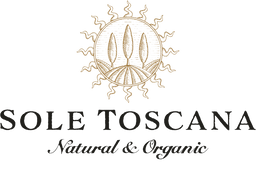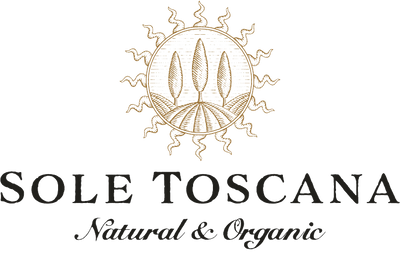Massages and facials are two of the most popular services that customers make appointments for at spas. Facials provide a myriad of benefits for the skin and help you relax.
However, you might not always have the money (or time) to visit the spa. Not to worry, you can do a facial at home that gives you all the benefits.
Before you dive in, here's what you need to know.
What is a facial?
Facials go beyond removing your makeup at night. They are a multi-step regimen that should be done regularly to maintain optimal skin health.
There are different types of facials, but they all play the same role. They cleanse, exfoliate, and replenish your skin, leading to a bright, well-hydrated complexion.
Why are facials good for you?
Apart from pampering and relaxation, there are various other benefits that facials give you:
A GLOWING COMPLEXION
A facial can help with; a buildup of dead skin cells, too much sun exposure, and dehydration that can all contribute to a lackluster complexion.
PROPER HYDRATION
Cold weather, dry air, overwashing, skin conditions such as atopic dermatitis, exposure to chemicals, or an unbalanced skin pH can all cause dehydrated skin.
FEWER BREAKOUTS
Facials can keep breakouts at bay, whether they're caused by medication, lack of hygiene, hormones, or a hereditary condition.
IMPROVED BLOOD CIRCULATION
Sluggish blood flow can make your complexion appear dull and lifeless.
SMOOTHER SKIN TEXTURE
The buildup of dead skin cells causes uneven complexion. Sun exposure, dirt, and pollution are also culprits since they cause your skin to appear rough or dry. Facials undo these harmful effects.
Consider this before performing a home facial
Here are a few things to consider to stay on the safe side before giving yourself a facial.
CONSIDER YOUR SKIN TYPE
For the facial to benefit your skin, you need to use the correct products for your skin type-dry, acne-prone, oily, or combination.
FOLLOW ALL THE STEPS
A facial is more luxurious than your usual daily routine. Don't skip any step or use less product than recommended.
PATCH TEST
Always do a patch test when trying out any new product, even if it's a natural one.
MASSAGE
When applying products, take the time to massage them into your skin for a few minutes. Doing this boosts circulation and stimulates the lymphatic system, leading to a glowing complexion.
NOT EVERYONE SHOULD STEAM
If you have acne, rosacea, or fungal infection, avoid steaming. The steam can aggravate these conditions while adversely increasing blood circulation.
USE CLEAN SHEETS
Oily sheets and pillowcases will undo all the hard work you put into the facial. They can harbor fungi and bacteria that irritate the skin.
Every night, your body sheds around 15 million skin cells. These cells attract thousands of dust mites.
NEVER PERFORM EXTRACTIONS
For your skin's health, leave extraction to a pro. Licensed estheticians have the right tools and know the proper method of extracting the pores.
Improperly done extractions present the risk of scarring.
What products do you need?
We recommend all-natural products for a wholesome experience.
- Oil cleanser for removing makeup. Choose one with nourishing oils such as avocado, jojoba, coconut, or argan.
- A gentle exfoliating cleanser or skin peel for a second cleanse. Go for a natural formula made of fruit enzymes.
- Facial scrub for deep cleansing.
- Alcohol-free toner to balance the skin's ph.
- A nourishing mask for your face, lips, and eyes.
- Serum to provide additional nutrients to the skin.
- Moisturizer to seal in the serum and provide hydration.
JAZZ UP YOUR FACIAL EXPERIENCE WITH:
- Your favorite relaxing playlist
- Bathrobe/Relaxed Clothing
- Jade or rose quartz roller
- Gua sha tool
- Essential Oils
- Scented candles
- Cucumbers
- Headband/Hair Clip

Home facials step-by-step
- Pull your hair back from your face and tie it with a hair clip.
- Use an oil cleanser to remove all makeup using massaging movements. Repeat if necessary.
-
Apply a gentle exfoliating cleanser and leave it on for 1-2 minutes.
NOTE: Use warm water during this step. Hot water can cause blood vessels to dilate and rupture. - Rub a facial scrub in gentle circular motions to remove dead cells. You don't need an expensive store-bought product, here's a simple yet effective DIY recipe.
-
- In a tea ball or strainer, brew a mug of loose-leaf green tea. Green tea benefits the skin by reducing the appearance of blemishes, fine lines, and scar tissue.
- Scoop two tablespoons of green tea into a bowl and let it cool.
- Add sugar to the tea a tablespoon at a time until the mixture becomes gritty.
- Pump up the scrub by adding a generous tablespoon of honey for its hydration and antibacterial benefits.
- Store any leftover scrub in a tightly sealed container in a cool, dry place. It remains fresh for up to two weeks.
5. Rinse your face and gently pat until dry.
6. It's now time for a steam treatment. Steaming opens your pores and prepares your skin for a nourishing mask. If you don't have a steamer, boil some water in a pot. Next, add herbs or essential oils. When the water boils, remove the pan from the stove. Place a towel over your head and put your face directly above the steam. As the steam works on your face, take several deep breaths, and relax. When you're satisfied, move on to the next step.
7. Apply a facial mask suited to your skin type and needs.
8. Rinse face again and pat to dry.
9. Apply an alcohol-free toner- this product balances the skin's pH and removes excess product.
10. Next, apply a serum on your face, neck, and décolleté. Choose a serum that has a mix of natural ingredients such as botanical extracts, essential oils, nourishing oils, and aloe.
NOTE: you only need a little since serums are concentrated.
11. Lastly, apply a moisturizer and give your face a massage. Use a tool like the jade or rose quartz roller, or your fingers if you prefer.
TIP: Ensure you wait for several hours before applying makeup and sleep on fresh sheets and pillowcases.
How often should you do a facial?
The ideal frequency is once a month. The epidermis regenerates every 28 days, but as we grow older, this happens less frequently (40-56 days).
However, don't overdo your facials, especially if you have acne-prone or sensitive skin.
In conclusion
No matter your skin type, facials should be a vital part of your skincare routine. Facials improve the health of your skin's elasticity, tone, and texture by fighting the effects of age, free radicals, heredity, and hormones.
DAILY MAINTENANCE
Your skin still needs daily care. This includes a well-balanced diet, broad-spectrum sunscreen, regular exercise, and sufficient water intake.
USE TOP QUALITY PRODUCTS
Facials aren't useful if you don't use the right products. Invest in certified organic products such as ours and watch your skin glow.
With love,
The Sole Toscana Beauty Team


